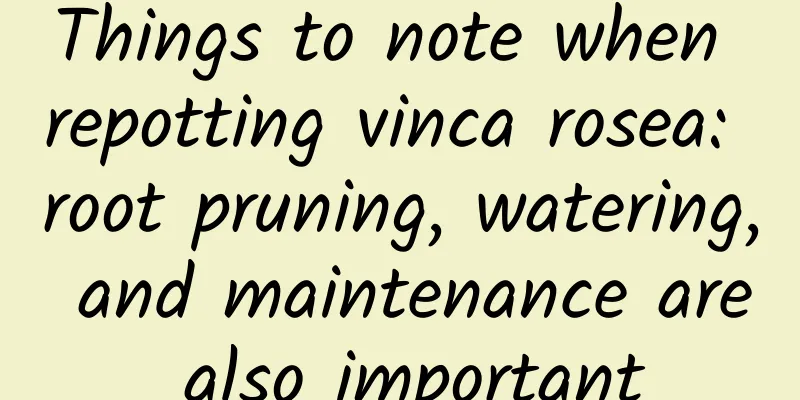Reasons and solutions for freesia not blooming

|
Freesia, also known as freesia, is a typical autumn-planted bulbous plant and is best planted in the autumn when the climate is pleasant. This plant has certain requirements for environmental conditions. It prefers mild, humid and sunny growing conditions. Below is a brief introduction to the reasons and solutions for freesia not blooming. 1. Insufficient light One of the main reasons why freesias don’t bloom. Although freesia can tolerate a certain degree of shade, if it is placed in a dark environment for a long time during its growth period, it may cause poor growth and affect flowering. If this is the source of the problem, increase light levels immediately and move the plant to a sunnier location, especially before flowering. The mild sunshine in spring is conducive to the growth of freesia without causing any harm to it. 2. The temperature is too low Freesia prefers a cool environment, but is not cold-resistant. In order to safely overwinter, the temperature needs to be kept above 5°C to prevent the plants from being frozen and affecting subsequent flowering and growth. If it is due to temperature problems, measures need to be taken to maintain the temperature. It is best to control it above 10°C and maintain a certain temperature difference between day and night. During the period of flower bud differentiation, keep the temperature between 13-18℃, which will help the vigorous growth and flowering of freesia and prolong the flowering period. 3. Insufficient nutrients During the flowering period, freesia's demand for nutrients increases. If the soil is poor and not fertilized for a long time, it will affect flowering. Before flowering, thin fertilizers should be applied regularly, mainly phosphorus and potassium fertilizers, or foliar fertilizer potassium dihydrogen phosphate should be sprayed to ensure that the plant obtains adequate nutrition, promote the expansion of flower branches and improve the quality of flowers. It should be noted that concentrated fertilizers or raw fertilizers should be avoided to avoid fertilizer damage. 4. Unsuitable soil Freesia requires a loose, breathable, fertile and well-drained soil environment to ensure normal growth and germination. If the soil used is too clayey or too alkaline, it may hinder root respiration and cause a variety of growth problems, which in turn affects flowering. If soil problems are the cause, you need to replace the soil with suitable soil as soon as possible to ensure the healthy growth of the plants. In addition, if freesia is in a closed environment, air circulation will be poor, affecting its growth and flowering. The invasion of pests and diseases will also consume the nutrients of plants, affecting their normal growth and flowering.
|
<<: Reasons and solutions for Christmas cactus not blooming
>>: Reasons and solutions for gardenia not blooming
Recommend
Feed the green radish some "medicine" and it will grow out of the pot in 30 days, with leaves as big as a palm!
Now, the green ivy can be regarded as a plant tha...
How to grow potted magnolia
1. Acidic soil Potted white magnolias need to be ...
What should I do if the orchid leaves I bought are dehydrated (can the orchid leaves be saved if they are severely dehydrated)
What to do if the leaves of orchids purchased onl...
How to grow safflower at home
1. Maintenance methods 1. Soil: Safflower grows b...
How to graft roses
The time for rose grafting The most commonly used...
What fertilizer is best for peppers?
The growth and development of peppers are affecte...
Time and method of cutting of bougainvillea
When it comes to plant varieties that bloom frequ...
What to do about Monstera black spot disease
1. Symptoms At the beginning of the disease, ther...
When is the best time to plant a pomegranate tree? Which month is the easiest to plant and survive?
There are two main methods of planting pomegranat...
Cauliflower's growing environment and local conditions
Cauliflower Growth Environment and Conditions Cau...
Which month is suitable for planting Salvia miltiorrhiza?
Salvia miltiorrhiza is mainly distributed in Anhu...
A better grape variety than Sunshine Rose
1. Queen Nina Queen Nina grape, also known as Pri...
Can Ginkgo be eaten?
Can I eat it? It should be noted that ginkgo is t...
When to plant peony and how to care for it
1. Best planting time Peonies are generally plant...
Cuttings never take root? Try these 6 tips, and turn 1 pot into 10 pots. You won’t have enough space at home!
Leaf cutting propagation Take Kalanchoe as an exa...









